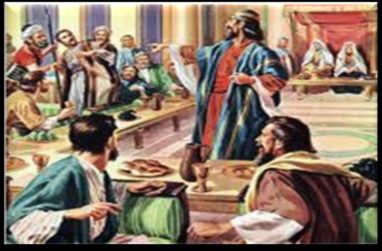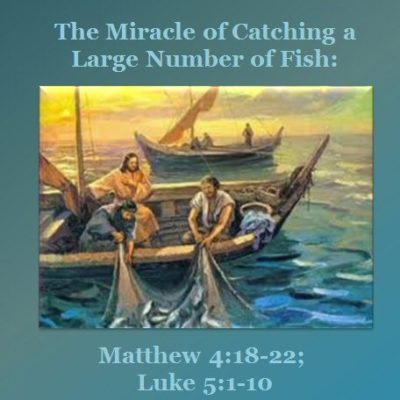The Parable of the Wedding Feast

The Parable of the Wedding likens the kingdom of heaven to a certain king, who made a marriage for his son, and called the people to come, they would not. Find out what this parable might mean for you.
Matthew 22:1-14; Luke 14:15-24
Jesus told the Parable of the Wedding Feast after the Parable of the Tenants the chief priests and Pharisees had heard this parable and wanted to lay hands on him but they feared the multitude, because they took Jesus for a prophet. So Jesus answered and spoke unto them again by parables, and said,
The kingdom of heaven is like unto a certain king, who made a marriage for his son, and sent forth his servants to call them that were bidden to the wedding: and they would not come.
Again, the king sent out other servants, saying, call them by name and tell them “Behold, I have prepared my dinner: my oxen and my fatlings are killed, and all things are ready: come unto the marriage.” Matthew 24:4
But they made light of it, and went their ways, one to his farm, and another to his merchandise: And the rest took his servants, and acted shamefully towards him and spoke evil of him, and slew them.
But when the king heard of this, he was very angry: and he sent forth his armies, and destroyed those murderers, and burned up their city.
Then he said to his servants, the wedding is ready, but those which who were called by name were not worthy. You go therefore into the highways, and as many as you shall find, call them to the marriage.
So those servants went out into the highways, and gathered together all as many as they found, both bad and good: and the wedding was furnished with guests.
And when the king came in to see the guests, he saw there a man which had not on a wedding garment: And he said unto him, Friend, how come you came to the wedding without having a wedding garment? And he was speechless.
Then said the king to the servants, Bind him hand and foot, and take him away, and cast him into outer darkness; there shall be weeping and gnashing of teeth. For many are called, but few are chosen.
What Can Be Learned From This Lesson?
Just like today weddings were important in Jesus days. A marriage contract was generally made between the parents of the bride and groom. It was not unusual for this to be the first time the bride and groom met. The groom would leave to prepare the home for them while the bride remained with her parents. Once the home was finished then the marriage ceremony would take place which was followed by the wedding banquet.
It was customary for the hosts to provide their guests with suitable wedding apparel. It would be disrespectful to not wear the provided garment. This would also show a lack of respect and appreciation. So you can understand why the king was so upset.
Originally the invitation was sent to Jews and then to also include Gentiles. Luke included the invitation was extended particularly to the “Go out quickly into the streets and lanes of the city, and bring in hither the poor, and the maimed, and the halt, and the blind.” Luke 14:21.
The first to be invited, those called to the wedding by name just did not come. Then again the king sent out the invitation but this time he let them know that the feast had been prepared. This means that everything was ready and they needed to come. Those invited made light of it and went on their ways, one to his farm, and another to his merchandise. The rest took his servants, and acted shamefully towards him and spoke evil of him, and slew them.
The refusal of wearing the proper wedding garment was an insult to the king. This is a reference to those who are Christians in name only. These are the ones who depend on what they do and their own self-righteousness to make them acceptable before the LORD God. It was the king who provided the wedding garments just as the LORD God, through the blood of Jesus Christ that provides salvation for mankind. This is a refusal of salvation and it is an insult to the Lord Jesus Christ.
The cross is the only way to salvation. Our wedding garment is Jesus Christ Himself, and unless we put Him on, we will miss the wedding feast. The punishment for refusing the salvation of Jesus Christ is just like the man who refused to wear the wedding garment “Bind him hand and foot, and take him away, and cast him into outer darkness; there shall be weeping and gnashing of teeth. For many are called, but few are chosen.” Matthew 24:14
This is another of the parables that is also is a warning and pronouncement of condemnation on the Pharisees who refuse to believe and accept the teachings of Jesus Christ. We need to make sure we are not like the Pharisees who are self-righteous hypocritical people who practice the strict observance of ceremonies of religion without the regard for the truth in Jesus Christ. They make a hypocritical show of religious devotion, piety, and righteousness. They are confident of their own righteousness, and are smugly moralistic and intolerant of the opinion and behavior of others. They pretend to have moral, religious beliefs and principles that he does not possess.
We need to follow the teachings and the truth of Jesus Christ and know what Jesus says to us” I am the way, the truth, and the life: no man cometh unto the Father, but by me.” John 14:6. Jesus is our salvation.
Cite Article Source
MLA Style Citation:
Holstein, Joanne “The Parable of the Wedding Feast:.” Becker Bible Studies Library Jan 2015.<https://guidedbiblestudies.com/?p=1900,>.
APA Style Citation:
Holstein, Joanne (2015, January) “The Parable of the Wedding Feast:.” Becker Bible Studies Library. Retrieved from https://guidedbiblestudies.com/?p=1900,.
Chicago Style Citation:
Holstein, Joanne (2015) “The Parable of the Wedding Feast:.” Becker Bible Studies Library (January), https://guidedbiblestudies.com/?p=1900, (accessed).


